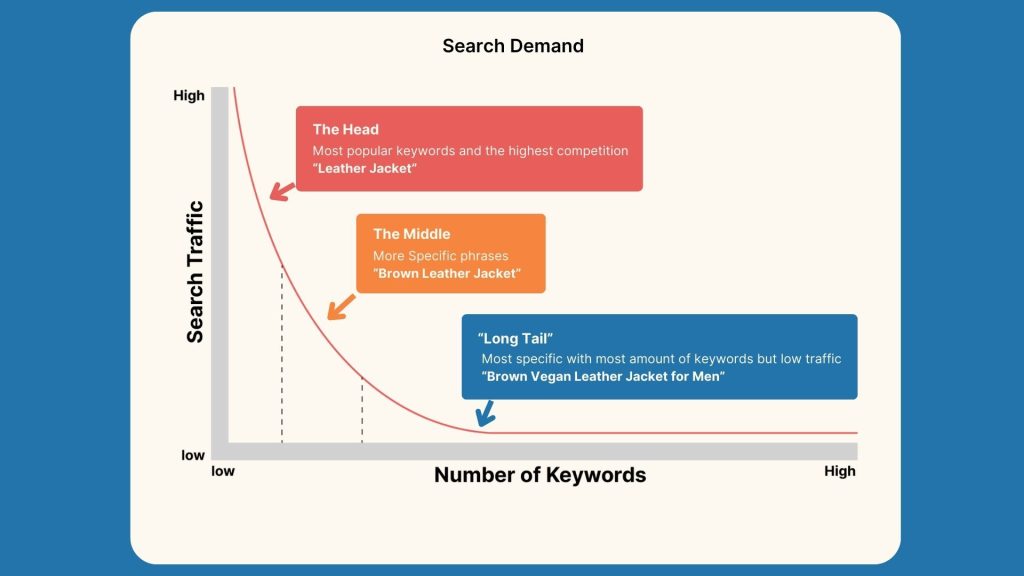Long-Tail keywords are long and more specific search terms that users type into search engines to get a particular result.
Although they are less common than shorter keywords, they result in a higher conversion rate as they fulfil a more specific set of search criteria.
What Exactly are They?
Long-Tail keywords are specific and detailed phrases that people use when searching for something online.
They are called “long tail” because when you look at search volumes. The more popular terms will dominate while the less popular terms form a “tail”. But if you want to look at it in a different way, Long-Tail Keywords are typically longer and more specific than generic keywords, which tend to be short and broad.

For example, “shoes” is a generic keyword, while “black leather running shoes for men” is a Long-Tail keyword. They are usually made up of two to five words and are more targeted to a specific audience or niche.
When Are They Useful?
They are particularly useful when your main keywords are common.
The more people that use keywords, the less impact they have, and the less likely they’ll convert to a higher ranking on a search engine.
They are essential in search engine optimization (SEO) because they help websites rank higher in search engine results pages (SERPs).
While generic keywords have high search volumes, they also have high competition, making it challenging to rank for them. In contrast, Long-Tail keywords have lower search volumes but are easier to rank for because they are more specific.
What Are The Benefits Of Long-Tail Keywords
They are helpful as they can help your website content feel of a higher quality as you are answering the question asked by your visitors.
Rather than repeating the same keywords repeatedly, a well-placed Long-Tail keyword can act as an alternative phrase. They can help your text read more naturally while still helping improve your SEO.
They are also more likely to convert into sales or leads because they are used by people further along in the buying process.
Someone searching for “running shoes” may just be browsing, while someone searching for “black leather running shoes for men” is likely to be closer to making a purchase.
By identifying and targeting relevant keywords and phrases, website owners and marketers can improve their chances of reaching their target audience and driving more traffic and conversions to their website.